
Issue #75: Saturday 21 December, 2024
Still reading at a much slower rate than in the past. I hope and expect next year to be better in this respect. I’m still recovering as best I can from the sad event mentioned in the last issue.
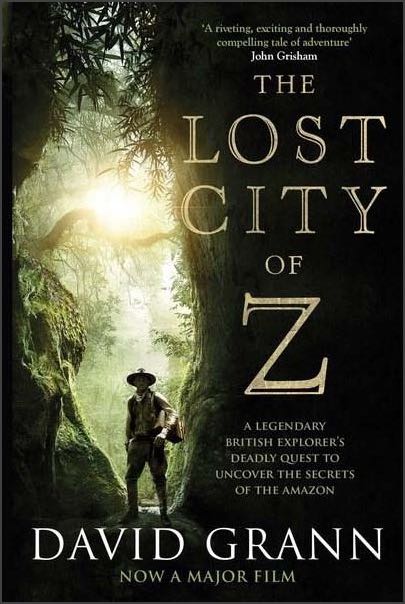
I’ve raved before about how good David Grann is as a journalist and author of non-fiction articles and books. Reading The Lost City of Z just confirmed this view. It’s extraordinary the lengths to which this middle-aged, unfit American is prepared to go to research and background his stories. In this case, travelling into the Amazonian jungle to pursue the fascinating story of the British explorer Percy Harrison Fawcett, who disappeared in 1925 while exploring the Amazon. Fawcett had become convinced of—indeed obsessed by—the idea that the Amazon basin once boasted an advanced civilisation which had built at least one major city housing many thousands of people. He gave this speculated city the enigmatic name of “Z”.
In other hands this story could have been merely a recitation of facts, but David Grann really knows how to tell a gripping narrative. Which is not to indicate that he over-uses his imagination in telling the story: no, he has carried out an immense amount of research, which is testified to by the many, many pages of notes and references he includes. And the book is made far more interesting and personal as it is also an account of Grann’s own voyage to the Amazon in pursuit of any evidence which remains of what happened to Fawcett and his men. In this, he is following in the tracks of the scores of expeditions made over many decades by people trying to find Fawcett or his remains, expeditions which in many cases led to the deaths of those involved—the Amazon is an unforgiving place.
At the start of the book, the sceptical reader is likely to imagine that Fawcett’s obsession was just that—a crazy idea taken to extremes—but by the ending of the book you are likely to take a new view of that obsession.
The Lost City of Z is based on an article Grann wrote for the New Yorker magazine and then expanded and released in book form in 2009. It was subsequently turned into a feature film in 2016. I haven’t seen the film, but it would be well worth following up.
Highly recommended.
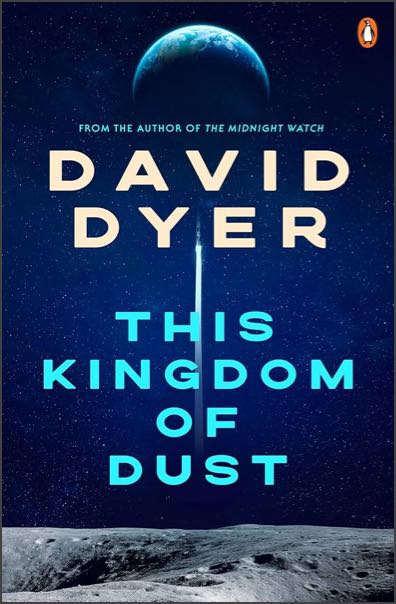
Can a thrilling novel featuring astronauts landing on Earth’s Moon nevertheless not be a work of science fiction? Because I think that’s what David Dyer has created here. Despite the setting, the only thing speculative here is a plausible twist to an actual historical event. You could at a stretch claim that this makes it a work of alternate history, I guess, but then what piece of historical fiction isn’t a fictional spin on true historical events?
So what is this novel about? It’s about two American astronauts, Buzz and Neil, on the Apollo 11 mission, successfully landing on the Moon. Interspersed with the chapters about these men are chapters which focus on a writer calling himself “Aquarius”, an egotistical and generally unpleasant character, who is trying to write a book about the Moon landing from the point of view of those left behind on Earth, in particular the wives and children of the astronauts.
So far, all of this is very close to the truth. Even “Aquarius” is based on the writer Norman Mailer who wrote a series of articles about Apollo 11 for Life magazine and indeed who did call himself that fanciful name.
The twist, of course, is that in Dyer’s book and unlike in the real history, something goes wrong after the landing. I won’t tell you what, you should read the book.
The strength of the book is how the author can make the known true story, even before the going-wrong, into a heart-pounding thriller. Afterwards, he speculates convincingly about how matters may well have played out. It’s a fascinating and gripping read.
I was, however, very disappointed by the book’s Epilogue, which takes the story off into a quite different direction. I felt this was the author not having the courage of his convictions. Personally I reckon you could skip it altogether and you’d feel better about the book.
Dyer, by the way, is an Australian author, who grew up in a coastal town in New South Wales. His previous novel, The Midnight Watch is about the ship which saw the distress flares from the Titanic but didn’t respond. I must hunt that up.
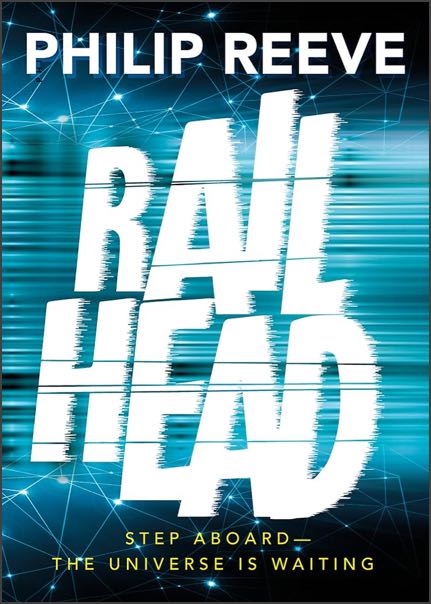
I’ve been reading a great deal by Philip Reeve this year! Largely that’s because I wanted to re-read his Mortal Engines quartet, but there was also the latest installment of his Utterly Dark series which I had to read. And I also wanted to give my 14-year-old grandson a set of Reeve’s Railhead series for Christmas, and I always think it’s a good idea for me to have read the books I’m giving my grandchildren so I know they will be suitable (and of course, because I love this kind of middle-grade fiction myself!). I’m giving his 12-year-old sister the Utterly Dark trilogy, by the way.
So. Railhead is the first book in a series of science fiction novels, set in quite a different universe than the Mortal Engine books, though like them set in a far distant future. In Railhead the human race has spread out among the stars and colonised many planets and encountered a number of alien species. The twist is that these planets are interconnected by a rail network built millennia ago by strange beings called Guardians. Trains run on rails which lead through portals through which they can make instantaneous leaps from one world to another. The trains themselves, moreover, are sentient and intelligent and take an active role in the story.
Against this setting we’re introduced to young Zen Starling, who is a petty thief. On the run from one robbery, he finds that he is being followed. Who is following him, and why, is gradually revealed, and takes him on a high-stakes adventure which ultimately leads to a catastrophic conclusion.
Really good stuff, and I’m looking forward to reading the other books in the series (which means I’m going to have to buy copies for myself, or else borrow them back from my grandson!).
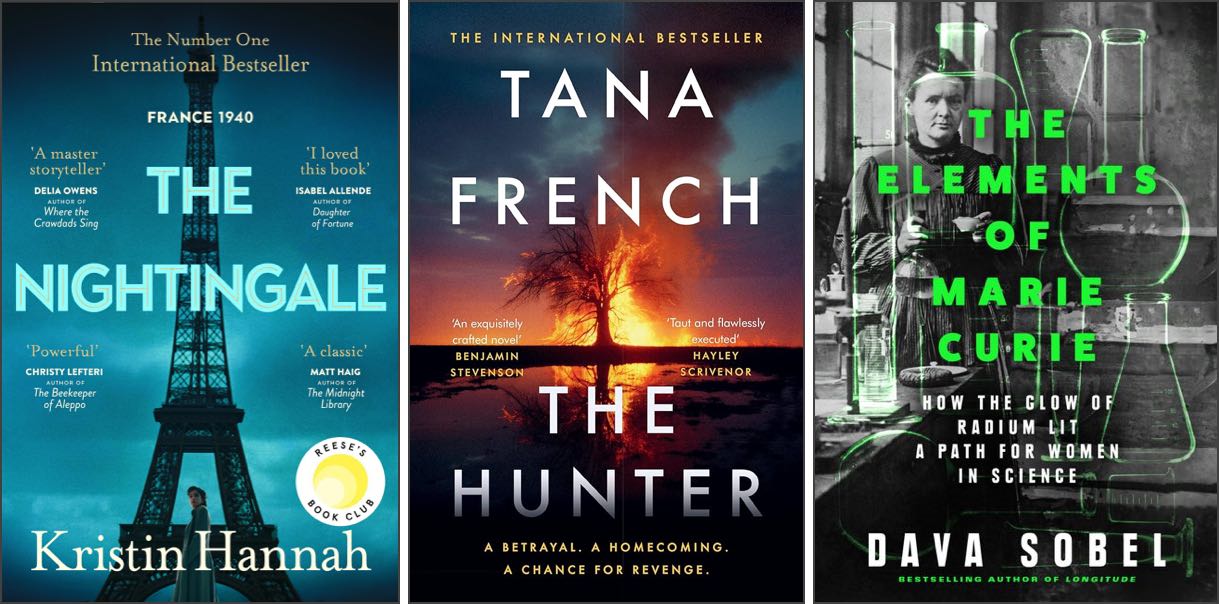
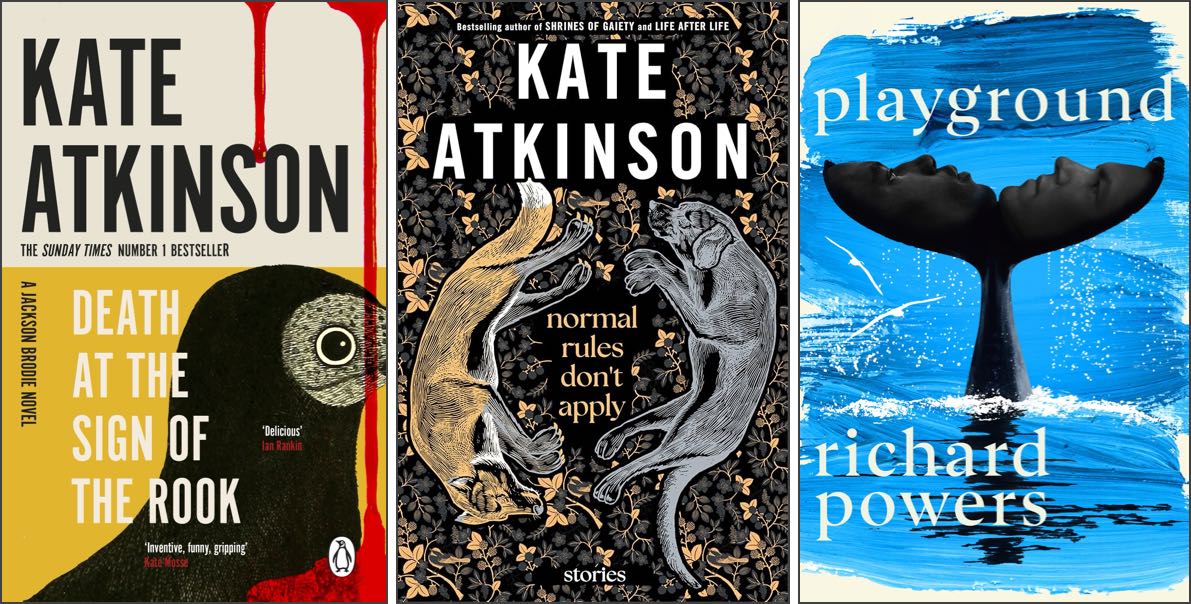
I’m a big, big fan of Kate Atkinson, so it’s rather surprising that I haven’t so far got to these, her latest books, particularly since Sign of the Rook is another Jackson Brodie novel. Normal Rules is a set of short stories. I also greatly enjoyed the only novel I’ve read so far by Richard Powers (Bewilderment, reviewed here), and have been collecting his others, which maybe I should read first?
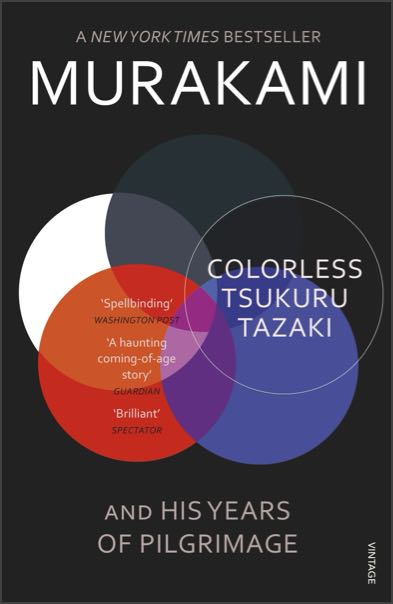
(Original review written December 2020. This has been edited for length).
This is the second book I’ve read by this Japanese author, the first being his monumental IQ84, which I liked a lot, despite (or because of) it being very strange. This, on the other hand, doesn’t have any fantasy elements to it.
The protagonist, Tsukuru Tazaki, was part of a group of five friends at high school, made up of three boys and two girls. The group was very close, doing everything together, a tight unit of five young people,though by unspoken unanimous consent, none of them have coupled up romantically. The Japanese names of four of these young people each include a colour, and after a while they just start referring to themselves by the colours, such as “Red” for Kei Akamatsu (whose name means “red pine”). But Tsukuru’s name has no such colour connection. Hence, “Colorless Tsukuru Tazaki”.
When Tsukuru is in his late 30s, when he tries calling up his friends to get together with them, to his shock they all refuse to speak to him on the phone, and won’t return his calls. When he finally manages to get in touch with one of the boys, he tells Tsukuru to stop calling. No reason is given.
Baffled and hurt after this rejection, Tsukuru returns to Tokyo and falls into a period of depression, filled with thoughts of suicide. Some fifteen or sixteen years pass. Tsukuru has been unable to settle down into any permanent relationship with a girlfriend, and has always felt unsettled in his life, until he meets a slightly older woman. But after he eventually tells her his story, she tells him he has to resolve this emotional wound for the sake of his mental health and their relationship. Tsukuru needs to contact his high school friends and find out why they rejected him so abruptly and with no explanation.
The rest of the book is this ‘pilgrimage’ he makes, finding out several disturbing things about what has happened to his friends and why they rejected him so abruptly and forcefully.
I found this a very interesting character study, and an intriguing story. You could consider the theme to be about how our view of ourselves can be very different from how we are viewed by others, even those close to us, and how our memory of the past can be nothing like how others remember the same circumstances (a similar theme to The Sense of an Ending by Julian Barnes, review here). And there’s a sad note of “what might have been”, “if only”.
I don’t read very many books translated from another language. I should certainly read more such as it’s always interesting to read about another culture from inside, as it were.
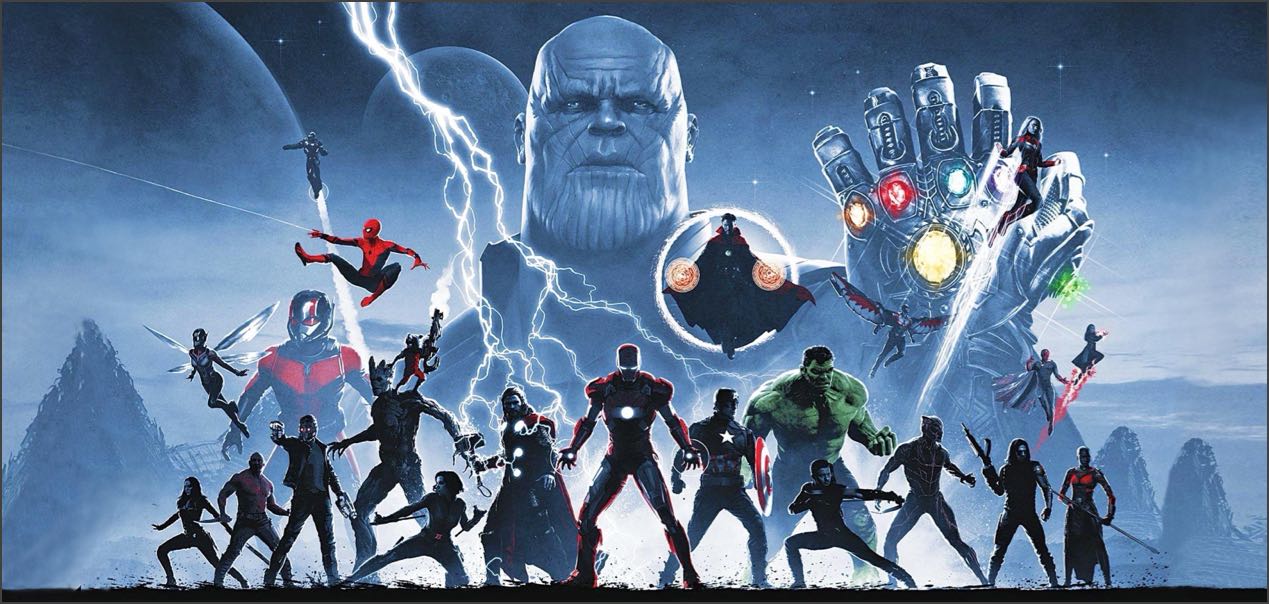
I’ve been watching heaps of television. As I mentioned last issue, I’m filling in the lonely evenings now that I’m living by myself. In this endeavour I’m finding watching rather mindless stuff like the Marvel super-hero films a great comfort. I’m actually currently “binge-watching” the films making up the “Infinity Stones” saga, one movie every few nights. I won’t bother reviewing them individually here. Not sure what I’ll go on to once I’m done.
I did watch one major movie not part of that saga, though:
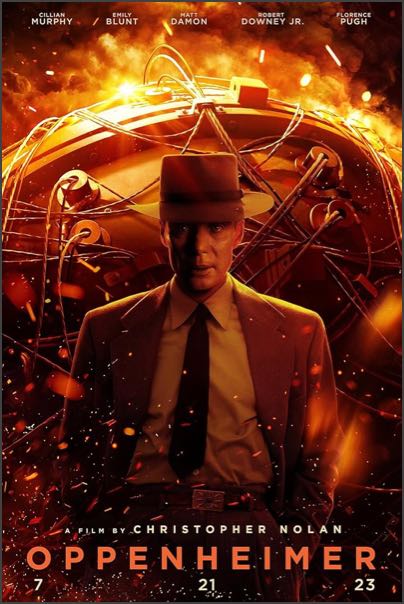
Directed by Christopher Nolan, this is a masterful look at a complex man. Cillian Murphy could have been born for this role, he looks perfect (and his representation at different ages is very convincing), and his portrayal of this brilliant but difficult character is compelling.
Fascinating, too, to see Robert Downey Jnr. in a very very different role than his Tony Stark in the Marvel movies. His role here as Admiral Strauss shows what a fine actor Downey is when given a chance. I’m thinking also of his role in Good Night, and Good Luck, released in 2005.
Other than that I don’t have much original to say about the movie, but I really enjoyed it.
Comment on Issue 73
28 September 2024
Mark Nelson
---
Yes, that is a memorable image!
—David
Comment on Issue 74
25 November 2024
Bruce Gillespie
I must say I like three-paragraph reviews much better than anybody’s long reviews these days. I realise that you and Perry (and Colin Steele and his wife Anna in SFC) do it better than anyone else, but I find that I much prefer the style of your reviews in Biblioscope 74 to many in your past issues. So something very positive has emerged from the necessary restrictions you’ve had to face when writing this issue.
I say this also because I find the only reviews I can write these days are short two- or three-paragraph reviews. I used to be able to write at least one 5000-word article a year, but my brain just won’t do it these days. Or maybe it’s just that nearly all my favourite authors are now dead -- with the interesting exception of Garry Disher. Perhaps I (or even you or Perry) should try a career-wide survey of his work.
I realise that I’ve read many of Dickens’ novels, but still not Pickwick Papers. But we do have a readable copy in the house. Some of this other long novels are in old dusty volumes with print too small for my eyes these days. Dymocks in town has new, readable paperbacks of all the novels, so I really should catch up.
I can’t say much about your TV watching, as I can’t do streaming. However, I do have discs of both the movie version and the Alec Guinness TV version of Tinker Tailor Soldier Spy, and I agree with you completely. There are moments in the movie when important plot points flick past in a sentence or two -- which is okay if you’ve read the novel a couple of times and watched the Guinness serialisation, but must have been very puzzling to the regular movie-goer.
I’ll be interested in your review of Karla’s Choice, the Le Carre prequel by his son Nick Harkaway. All the elements are there, but it seems to have a very big hole in the middle of it. Still, Harkaway’s portrait of Smiley is fascinating, because I suspect Le Carre was so much inside Smiley that he never quite illuminated his character from the outside, only from the inside. Still, Karla’s Choice is very much better than all those umpteen ‘sequels’ to characters such as Poirot or Sherlock Holmes.
It’s also a reminder that I must finish catching up on Harkaway’s own SF novels, which are very much better than almost any other British SF novels of the last 20 years (except perhaps the recent, fascinating In Ascension from Martin MacInnes, which I should review myself).
Sorry I don’t send letters of comment more often. I just liked this issue in particular, enough to divert myself from finishing two issues of SFC in one swoop. If that’s possible by Christmas.
---
Well, we’ll have to see about the length of my reviews in future. Perhaps I do tend to rattle on for too long about books.
Pickwick Papers suffers from being Dickens’ first novel, I'd say. Definitely too long and far too many diversions from the main story, such as it is. It's worth reading if you are a Dickens completist. Remarkable that his next book was Oliver Twist, a much superior book.
I haven't yet read Karla’s Choice, though it’s tempting. But there is a big pile of Le Carré I haven’t yet touched.
—David
If you’d like to make a modest contribution to my efforts in this newsletter, I’d love it if you would buy me a coffee.
Want to comment? Please send an email to:

© Copyright 2024 by David R. Grigg
and licensed under Creative Commons License CC BY-ND 4.0.
I haven’t reread the Mortal Engines Quartet, though I have reread the final chapter in A Darkling Plain on more than several occasions. I don’t know why, but I really enjoy that chapter. Reading this series must be the first time that I’ve read any books aimed at the early teenager market since I was an early teenager. Reading it I didn’t think “Wow, this is a great series for early teenagers”. No, I thought “Wow, this is a great series”.
Based upon my enjoyment of the Mortal Engines Quartet, and your good word, I’ll put both the Utterly Dark trilogy and the Fever Crumb books onto my list of books that I should read, with a preference for reading the later. I was able to buy the Mortal Engines Quartet in a box set, if I can find a box set of the Fever Crumb trilogy that will seal the deal.
When I read that “At the same time, London is coming under threat from some savage bands” I put two and two together - the first image coming to mind being that the reformed Oasis are playing in London as part of the domestic leg of their tour.